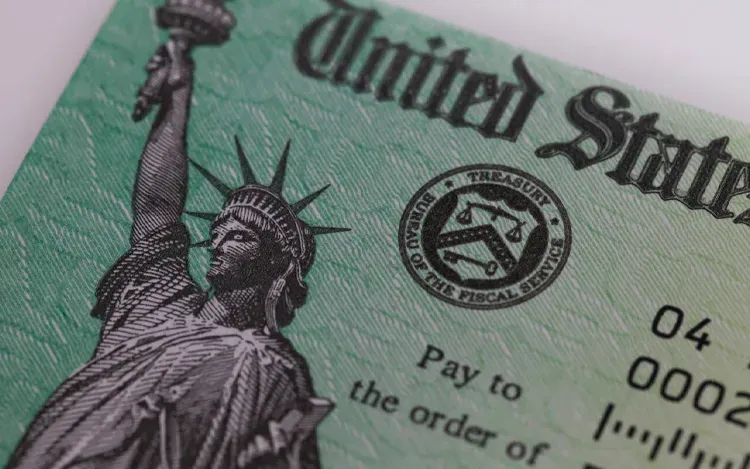Gambling has long been a popular pastime for millions of people worldwide. As more and more regions legalise and regulate gambling activities, understanding how gambling tax rates work has become increasingly important for players. Whether you're a seasoned gambler or a casual player, the taxes you pay on your winnings can vary dramatically depending on where you’re located. Some countries apply low tax rates, while others impose hefty taxes on gambling earnings. This comprehensive guide delves into the different gambling tax systems across the globe, offering a detailed overview of how tax rates impact players in various countries.
Understanding gambling tax rates is essential for players, especially those who participate in online gaming or place bets at land-based casinos. In countries with higher tax rates, players might find that their winnings are significantly reduced once taxes are applied. On the other hand, regions with lower or no taxes on gambling winnings might seem more attractive to players looking to maximise their earnings. In this guide, we will break down the gambling tax systems in key regions and provide examples of how these taxes are levied, all while keeping the focus on both land-based and UK gambling sites.
Gambling Tax in the United Kingdom
The United Kingdom is one of the most well-regulated and popular gambling markets globally. Here, gambling is taxed under the Gambling Duty, which applies to a variety of gambling activities, including betting, gaming machines, and casino games. The UK has a relatively straightforward tax structure for operators, but when it comes to individual players, the landscape is a little different.
For most players in the UK, gambling winnings are not taxed. This means that whether you win on a casino game or from placing bets at a sportsbook, you won’t owe taxes on those winnings. This is a key reason why many consider the UK a favourable environment for gambling, especially when compared to countries with higher taxes.
However, operators themselves are taxed on their revenues, and these taxes are often passed down to consumers in the form of slightly higher odds or fees. In the case of online gambling, UK gambling sites are subject to a 21% Remote Gaming Duty if they offer games or bets to UK residents. While players aren't taxed directly, they should always ensure that their chosen online casino or bookmaker is licensed by the UK Gambling Commission to ensure their winnings are protected.
Our recommended gambling sites for UK players.
Gambling Tax in the United States
In the United States, gambling tax rates are both federal and state-specific, meaning that the tax burden can vary greatly depending on where the gambling activity takes place. At the federal level, the Internal Revenue Service (IRS) requires individuals to report gambling winnings, and these are taxed as part of your income. The federal tax rate on gambling winnings can range from 10% to 37% depending on the total amount won, and this rate applies to all forms of gambling, including poker, casino games, and sports betting.
On top of federal taxes, each state has its own tax rates, and some states impose additional gambling taxes. For example, Nevada, home to Las Vegas, taxes gambling winnings at a state level but does not apply a state income tax, whereas other states like New Jersey and Pennsylvania apply gambling taxes on winnings from online casino games and sports betting, in addition to any federal taxes owed.
This complex system can make understanding gambling taxes in the United States challenging for players, especially those who win large sums. It’s advisable for players to keep track of their winnings and losses, as gambling losses can be deducted from taxable income, which may reduce the overall tax burden.

Gambling Tax in the United States
Gambling Tax in Australia
Australia is another country with a well-regulated gambling industry, but it operates under a slightly different taxation model. In Australia, gambling winnings are not taxed for players. This is because gambling winnings are not considered taxable income in Australia, unlike other forms of income such as wages or investment earnings.
It's important to note that while players do not pay tax on their winnings, poker machine operators in some states are subject to a 25% tax on their revenue, which impacts the overall gambling experience for players.
Gambling Tax in Canada
Canada, like the UK, has a relatively player-friendly gambling tax system. Gambling winnings in Canada are not taxed. This means that players can enjoy their winnings without worrying about paying taxes, whether they play at land-based casinos or engage in online gambling activities. The Canadian government has chosen not to tax gambling winnings because they are considered a form of “gambling income,” which is seen as fundamentally different from wages or salaries.
However, while players don’t have to pay taxes on winnings, casinos and online gambling operators are taxed on their revenues. These taxes are levied by provincial governments and vary from region to region. For instance, Ontario has a tax rate of 20% on land-based casino earnings, while other provinces, such as British Columbia, impose slightly different rates depending on the type of gambling activity.
Gambling Tax in Other European Countries
In many European countries, gambling taxes are relatively high, particularly when it comes to online gambling activities. In Germany, for example, there is a 5% tax on sports betting and a 17% tax on online casino winnings. Germany has a highly regulated gambling environment, and taxes collected from gambling operators are often used to fund public services.
France, another European nation, imposes a flat 2% tax on gambling winnings, which is deducted from the amount won at land-based casinos. However, players can generally expect a more favourable environment in countries like Malta, where gambling winnings are not taxed, providing a more lucrative environment for both land-based and online gambling.
Conclusion: The Global Landscape of Gambling Taxation
Understanding the gambling tax landscape around the world is crucial for players who wish to maximise their winnings and enjoy gambling without being burdened by excessive taxes. Whether you’re playing at UK gambling sites or engaging in land-based gaming across the globe, knowing how taxes apply to your winnings is essential.
As the global gambling industry continues to grow and evolve, it’s likely that tax policies will continue to change, especially with the rise of online gambling. Always ensure that you’re aware of your country’s gambling tax laws and consult a tax professional if needed, particularly if you plan to gamble extensively or win substantial amounts. For more insights on gambling taxes and the latest industry news, Gambling Zone remains your go-to source for all things gambling-related.

Conclusion The Global Landscape of Gambling Taxation







